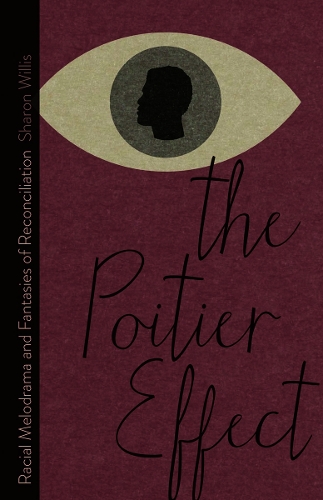
The Poitier Effect: Racial Melodrama and Fantasies of Reconciliation
(Paperback)
Publishing Details
The Poitier Effect: Racial Melodrama and Fantasies of Reconciliation
By (Author) Sharon Willis
University of Minnesota Press
University of Minnesota Press
1st June 2015
United States
Classifications
Tertiary Education
Non Fiction
Ethnic studies / Ethnicity
Civics and citizenship
Individual actors and performers
791.43028092
Physical Properties
Paperback
272
Width 140mm, Height 216mm, Spine 38mm
Description
Against the fraught background of the civil rights struggle, Sidney Poitier emerged as an image of dignity, discipline, and moral authority. In his characters' restrained responses to ignorance and injustice, Poitier represented racial reconciliation and reciprocal respect. Sharon Willis shows this "Poitier effect" to be a function of white wishful thinking about race relations as she traces it from the civil rights era to our own.
Reviews
"In The Poitier Effect, Sharon Willis is an illuminating analyst of film as a visual and sonic art form and perhaps our most astute interrogator of the workings of race in American film."Michael Awkward, University of Michigan
"Sharon Willis is one of our most trenchantand wittiestcritics of how popular cinema casts narratives of race and gender. She unfolds a remarkably resilient script, featuring not only the actor Sidney Poitier but the Poitier effect, a mechanism of reassurance of white tolerance, of change without change."Patricia White, author of Womens Cinema, World Cinema
"Rewardingly thoughtful."CHOICE
"The Poitier Effect, complicated by contemporary ideas about feminism, sexuality, and privilege, continues to inform our collective memory as well as our visions of postracial society."CBQ: Communication Booknotes Quarterly
"A taut and insightful book concerning race representation in cinema."Journal of Film and Video
"The Poitier Effect should be considered for inclusion in courses in African American cultural history, communication, feminist or cultural studies, as well as U.S. popular culture."Journal of African American History
Author Bio
Sharon Willis is professor of art history and visual and cultural studies at the University of Rochester. A coeditor of Camera Obscura, she is also the author of High Contrast: Race and Gender in Contemporary Hollywood Film and Marguerite Duras: Writing on the Body, as well as many essays on contemporary cinema.
